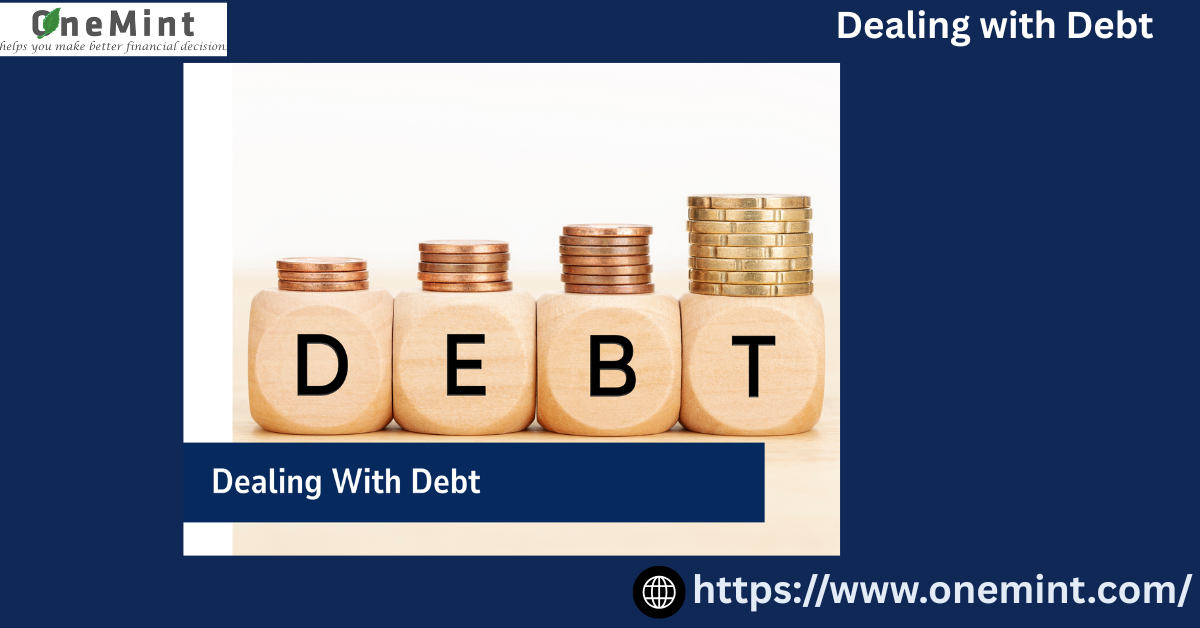Dealing with Debt

Introduction of Dealing with Debt :-
Debt can feel like a never-ending cycle, weighing down your financial and emotional well-being. Whether it’s credit card debt, student loans, or medical bills, learning how to manage and eliminate debt is essential for long-term financial health, practical strategies to help you tackle your debts effectively and regain control over your finances.
Understanding Your Debt
Before tackling debt, it’s crucial to understand exactly how much you owe and to whom. Start by listing all your debts, including:
- The total amount owed
- Interest rates
- Monthly payments
- Due dates
Types of Debt
- Secured Debt: Backed by collateral (e.g., mortgage, auto loans).
- Unsecured Debt: No collateral required (e.g., credit cards, personal loans).
Creating a Debt Management Plan
Setting Realistic Financial Goals
- Define clear, achievable targets for paying off your debts.
- Set deadlines to measure progress.
Budgeting Effectively
- Track your income and expenses.
- Identify unnecessary expenses and cut them down.
Prioritizing Your Debts
Debt Snowball Method
- Builds motivation as you see progress quickly.
Debt Avalanche Method
- Focus on paying off high-interest debt first.
- Saves more money in the long run.
Negotiating with Creditors
- Call your creditors and request lower interest rates.
- Ask about debt settlement options.
- Request extended payment terms to reduce monthly burden.
Debt Consolidation Strategies
Debt Consolidation Loans
- Simplifies repayment.
Balance Transfer Credit Cards
- Transfer high-interest debt to a low or 0% interest card.
- Be mindful of transfer fees and introductory period expiration.
Avoiding High-Interest Loans
- Avoid payday loans and high-interest personal loans.
- Look for lower-interest alternatives like credit union loans.
Boosting Your Income to Pay Off Debt Faster
- Start a side hustle such as freelancing, tutoring, or ride-sharing.
- Sell unused items on online marketplaces.
Cutting Expenses to Free Up More Money
- Cook meals at home instead of eating out.
- Cancel unused subscriptions and memberships.
- Shop with a budget and stick to a grocery list.
Using Government and Nonprofit Assistance Programs
- Look into government-sponsored debt relief programs.
- Contact nonprofit credit counseling agencies for free guidance.
Building Healthy Financial Habits
- Save a portion of your income for emergencies.
- Avoid using credit cards for unnecessary purchases.
- Invest wisely to build long-term wealth.
The Psychological Aspect of Debt
Debt can be stressful, but adopting a positive mindset is key. Celebrate small victories and seek support from friends or financial advisors to stay motivated.
When to Seek Professional Help
If your debt situation feels overwhelming, consider consulting a financial advisor. In extreme cases, bankruptcy might be a last-resort option.
Success Stories: Real-Life Examples of Debt Freedom
Many individuals have successfully overcome massive debt through discipline.
